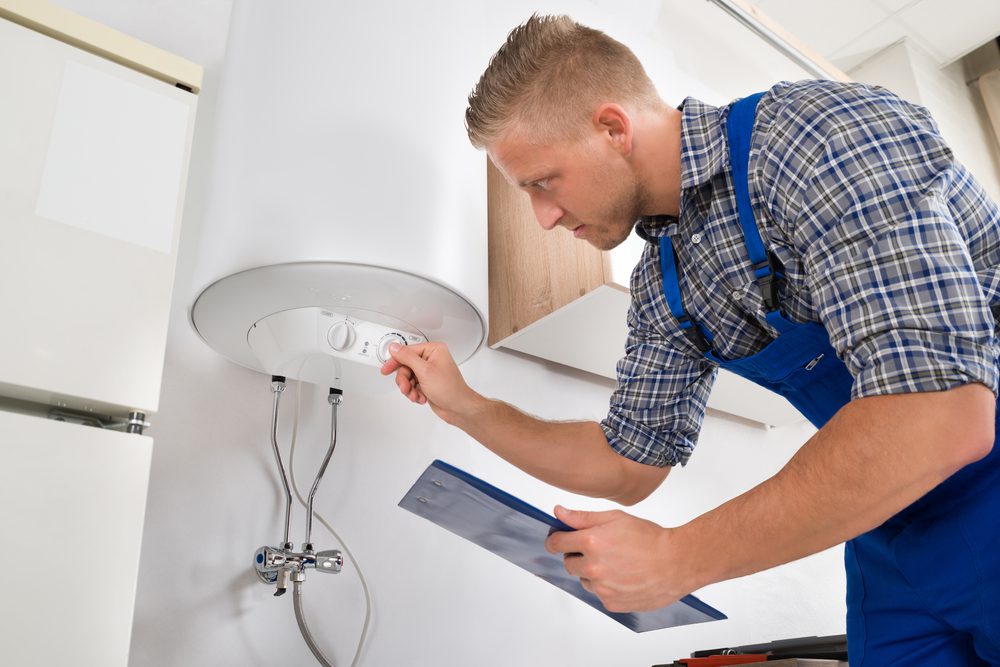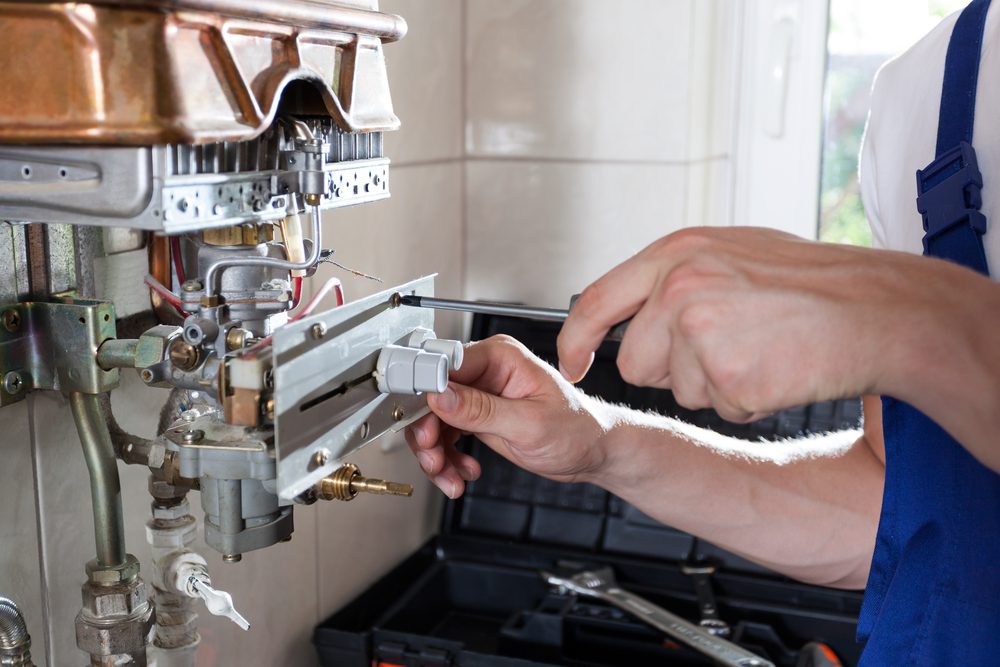
Your water heater is an essential plumbing fixture that you use every day. Whether you’re washing dishes, doing a load of laundry, or taking a shower, your water heater works hard to provide you with plenty of hot water for essential activities. These units often last between 10 and 15 years before you need to replace them. But which type of water heater suits your home best?
This guide explores the pros and cons of having a gas vs. electric water heater. Use this information to make an informed decision before scheduling a water heater installation service.
Pros and Cons of Electric Water Heaters
The water inside an electric water heater tank heats up thanks to coils connected to your home’s electrical system. The water remains in the tank at a certain temperature before passing through water pipes when you need it. You could also have a tankless water heater, which doesn’t store any water but heats it on demand instead.
Are electric water heaters better than gas-powered units? The top advantages of these systems include:
- Versatility of styles: You can install a conventional or tankless model.
- Optimum safety: When evaluating the safety of a gas vs. electric water heater, experts usually recommend electric units. Since they don’t burn a fuel source, you won’t have to worry about dangerous gas leaks.
- Energy efficiency: Electric units are more energy efficient when you need hot water right away.
As appealing as electric water heaters may be, there are a few drawbacks to keep in mind. The following issues may deter you from choosing an electric unit when it’s time to upgrade your water heater:
- Unsuitable for weak electrical systems: If you don’t have a strong electrical connection or experience frequent blackouts, it will directly impact your water heater’s function.
- It takes a long time to heat water: Conventional water heaters take longer to heat the tank’s supply when the system is powered by electricity compared to gas. Electric tankless units may have trouble accommodating the household’s demand for hot water.
Pros and Cons of Gas Water Heaters
Gas water heaters are available in the conventional tank-style model and rely on a fuel source for heat. This is usually in the form of natural gas, though propane and liquid petroleum gas are alternatives. The gas and pilot light ignite the burner, which heats the water inside the tank.
The pros of these units include:
- Fast heating abilities
- Hot water is available even when the house has no power
- Simple to install
On the other hand, you should also consider the cons of gas water heaters. These include:
- Not available in homes without a gas line hookup
- Require more maintenance than electric units
- Require proper ventilation because of carbon monoxide emission
- Burning natural gas has a negative environmental impact
Electric vs. Gas Water Heater Specifications
When researching the specifications of gas vs. electric water heaters, you’ll likely find that each system comes with different storage capacities, heating rates, lifespans, and upfront costs. Are electric water heaters better than gas models? They have longer lifespans but are smaller, so households with many occupants may benefit from a large gas-powered unit.
In terms of cost analysis, electric units are cheaper to install but have higher operating costs in areas where natural gas costs less than electric rates.
Water Heater Installation and Maintenance Requirements
When comparing a gas vs. electric water heater, the maintenance and installation requirements are important factors to consider. See how water heater services vary between each style to decide what works best for you.
Gas Water Heater Installation and Maintenance
Gas water heaters are useless without their fuel source. If your home doesn’t have a gas line hookup, you’ll need to install one to accommodate the water heater. You’ll also need water heater maintenance more frequently than with an electric model because the gas valve can leak without proper care.
Electric Water Heater Installation and Maintenance
Electric water heaters are easy to install and don’t require modifications to your electrical system. They do need annual maintenance to prevent sediment buildup and corrosion at the bottom of the tank, but less maintenance is required than with conventional models.
Call Hutchinson for All Your Water Heater Repair and Installation Needs
Deciding to buy a gas vs. electric water heater requires careful thought and the right team to install your new unit. The licensed plumbers at Hutchinson specialize in water heater installation and repairs. We’ll give you tips for choosing a system and getting the most out of your new water heater.
Choose New Jersey’s most trusted plumbing contractor for all your water heater needs. Contact Hutchinson at (856) 420-7018, or use our online booking tool to request an appointment.


